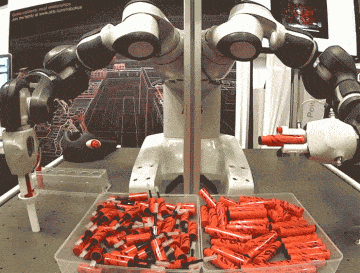Yohann Koshy in The Baffler:
 TWO YEARS AGO, at a panel discussion held in a crowded theater in Brighton, England, on the fringe of the Labour Party’s annual conference, two thinkers were debating the way out of capitalism. Paul Mason, the journalist and author of Postcapitalism, relayed his book’s thesis: information technology, as seen in digital files that cost nothing to reproduce, “cheapens real things so rapidly that it disrupts capitalism’s normal mechanisms of adaptation and survival,” thus undermining the system from within. David Harvey, the scholar of Marx’s Capital, disagreed:
TWO YEARS AGO, at a panel discussion held in a crowded theater in Brighton, England, on the fringe of the Labour Party’s annual conference, two thinkers were debating the way out of capitalism. Paul Mason, the journalist and author of Postcapitalism, relayed his book’s thesis: information technology, as seen in digital files that cost nothing to reproduce, “cheapens real things so rapidly that it disrupts capitalism’s normal mechanisms of adaptation and survival,” thus undermining the system from within. David Harvey, the scholar of Marx’s Capital, disagreed:
Every time a new wave of technology comes along, it does indeed seem to suggest some beautiful new future that can be constructed out of it. . . . the answer is, “well, it could be,” but it’s not going to be because the capitalist social relations are dominant . . . they are going to make sure that these new technologies get used to squeeze value out of labor.
It wasn’t exactly the Rumble in the Jungle, but the exchange illustrated two deeply different approaches to post-capitalist strategy: one places its emphasis on technology to light the way, the other on the dynamics of class struggle. Moderating the discussion was Aaron Bastani, co-founder of Novara Media, an outfit that emerged out of the 2010-2011 UK student movement and which has been plugging the gap in Britain’s discursive ecosystem for complex and accessible thinking from the left. Bastani’s first book, Fully Automated Luxury Communism, is something of a bridge between Mason and Harvey, fusing a futurological account of the emancipatory potential of digital technology with a “political project of collective solidarity and individual happiness.” If successful, Bastani argues, the endpoint will be a society “as distinct from our own as that of the twentieth century to feudalism.”
Fully. Automated. Luxury. Communism. It sounds like the future. Or, rather, how the future used to sound, when children read magazines about holidays on the moon. Popularized by Bastani in a 2014 video, the pitch is simple: post-2008 capitalism is in a secular crisis, sustained by an unprecedented amount of cheap money from central banks; automation, now paired with the cognitive capacities of artificial intelligence, is eating away at working and middle-class jobs; this renders a new account of a post-capitalist and post-work society necessary.
More here.
